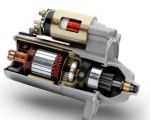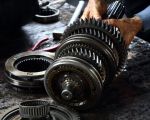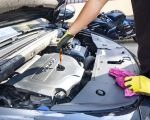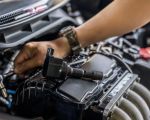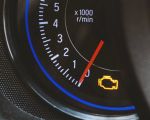- 1-Understanding-the-Role-of-the-Water-Pump
- 2-Common-Signs-of-a-Failing-Water-Pump
- 3-How-Overheating-Relates-to-Water-Pump-Failure
- 4-Unusual-Noises-and-Leaks-Indicating-Water-Pump-Issues
- 5-Case-Studies-of-Water-Pump-Failure
- 6-When-to-Call-Professionals-and-Preventive-Tips
1. Understanding the Role of the Water Pump
The water pump plays a crucial role in your vehicle’s cooling system by circulating coolant through the engine and radiator. This process regulates engine temperature, preventing overheating and potential damage. Without a functioning water pump, the engine can overheat quickly, leading to costly repairs.
Knowing how this component operates helps in recognizing when it malfunctions, allowing timely intervention to avoid further complications.
2. Common Signs of a Failing Water Pump
Recognizing early symptoms is key to diagnosing water pump failure. Typical signs include persistent engine overheating, coolant leaks near the front-center of the vehicle, and a noticeable drop in coolant levels without apparent external cause.
Other warning signs are steam emanating from the radiator area, a whining or grinding noise coming from the engine bay, and sometimes poor heater performance inside the car. These symptoms indicate that the water pump may no longer efficiently circulate coolant.
3. How Overheating Relates to Water Pump Failure
Overheating is often the most obvious and serious symptom of water pump failure. When the pump stops circulating coolant properly, the engine temperature rises rapidly. This can cause head gasket failures, warped cylinder heads, or even complete engine seizure if ignored.
Drivers should never overlook warning lights or temperature gauges indicating overheating and should act promptly to prevent permanent damage.
4. Unusual Noises and Leaks Indicating Water Pump Issues
Many water pump failures begin with mechanical wear, leading to unusual noises such as grinding, squealing, or rattling. These sounds often stem from worn bearings or a loose pump pulley.
Coolant leaks are also common, visible as puddles under the car or a crusty residue around the water pump housing. Detecting these early signs can save time and money by addressing the problem before severe damage occurs.
5. Case Studies of Water Pump Failure
One notable case involved a commuter who ignored early coolant leaks and unusual engine sounds. Eventually, their car overheated on the highway, resulting in an emergency tow and extensive engine repairs. Early detection could have prevented the costly outcome.
Conversely, another driver recognized the whining noise and coolant drop, seeking immediate professional help. The water pump was replaced promptly, avoiding engine damage and prolonged downtime.
These real-life stories highlight the importance of vigilance and timely response to signs of a failing water pump.
6. When to Call Professionals and Preventive Tips
If you notice any signs of water pump trouble, such as overheating, leaks, or unusual noises, contacting a professional mechanic is essential. Experts can perform diagnostic tests and recommend repairs or replacement.
Regular maintenance, including coolant flushes and inspections, extends the water pump’s lifespan. Avoiding low coolant levels and promptly addressing engine warning signs keeps the cooling system functioning optimally.
For reliable repair services and assistance, Rescue & Towing offers trusted solutions to get you back on the road safely and quickly.













